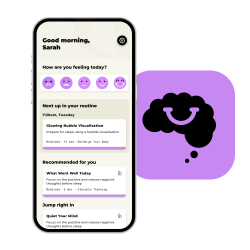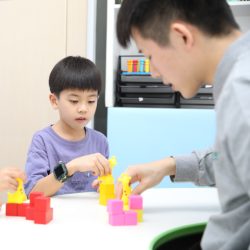Strong communication between parents and teachers plays a pivotal role in a child’s school experience. Whether your child is just starting primary school or preparing for exams in secondary, positive collaboration with their teachers can help ensure that concerns are addressed early, strengths are supported, and learning feels more connected between home and school.
But for many parents, it is not always clear when or how to engage. Should you email about a missed homework assignment? How do you raise a concern without sounding overly critical? With packed schedules on both sides, finding the right rhythm can feel daunting. The good news is that small adjustments in tone, timing and intent can make a big difference.
Below are practical tips that can help you communicate more effectively and constructively with your child’s teachers.

1. Start with partnership, not a problem
When reaching out to a teacher, begin by expressing your shared goal: supporting your child’s learning and wellbeing. Even if you are raising a concern, framing it in a collaborative way sets the tone for a productive conversation.
Instead of: “Why didn’t I hear about this earlier?”
Try: “I’d really appreciate your insight — I want to make sure I’m supporting what you’re seeing in class.”
2. Be clear and concise
Teachers manage communication from dozens of families, so keeping your messages focused increases the chance of getting a timely and thoughtful reply. Aim to include only the key points, and if necessary, ask to schedule a follow-up call or meeting for more complex matters.
Example: “I noticed [child’s name] has been feeling anxious about group presentations. Is there anything we can do at home that might support their confidence in class?”
3. Ask, do not assume
If your child brings home a concern, it helps to approach the teacher with curiosity rather than conclusions. There may be context you are not yet aware of, and teachers are often eager to clarify or provide insight.
Try: “My child mentioned feeling left out during group work. I’d love to understand more from your perspective.”
4. Respect the teacher’s communication rhythm
Some schools have clear guidelines for when and how teachers respond to families — whether via email, a learning platform, or scheduled office hours. If you are unsure, ask early in the year what works best.
Tip: “Would you prefer email or a note in the homework folder if I have a quick question?”
5. Keep your child in the loop, when appropriate
Depending on age and maturity, involving your child in certain parts of the communication process can help them develop self-advocacy skills. Letting them know when and why you are contacting a teacher can also prevent misunderstandings.
Example: “I’ve emailed your teacher to check on that science project. Let’s see what [she] says — maybe [she’ll] have suggestions for how to get started.”
6. Say thank you — it goes a long way
Acknowledging a teacher’s support, especially when things are going well, helps build goodwill. A short message of appreciation does not just brighten a day — it opens the door to deeper collaboration.
Example: “Thanks again for encouraging [child’s name] during the transition to [Year 3]. [She] comes home excited about school — it means a lot.”
Every teacher has a different style, and each parent-child-teacher relationship is unique. It is natural to try a few different approaches to find the tone and format that works best for everyone involved. Sometimes that means adjusting how often you check in, or rethinking how you raise an issue. What matters most is keeping communication respectful, consistent, and focused on shared goals — because when parents and teachers work together, children are far more likely to thrive.
Health and Wellness Products / Services That May Be of Interest:
Get a special discount by quoting code AISLMALL during CHECKOUT.
Daybook Journal

Daybook is a digital journal and diary app that enables users to write, reflect, and preserve their thoughts and experiences. It offers cloud sync, voice-to-text, mood/activity tracking, personalization, and AI-powered insights to enhance the journaling experience.
iLiving: Initial 90-minute Consultation with Supported Healing for Children

iLiving consultation includes health scan of a child who is suffering from chronic physical or mental health challenge and coaching to their caretaker/parent(s).
Llegend – Diploma in Professional Aromatherapy

This aromatherapy course by Llegend covers essential oils, anatomy, and therapeutic applications, combining theory and practice. Accredited by the IFA, it offers exemptions for the UK TQUK Level 4 Certificate. As Hong Kong’s leading college for aromatherapy, it boasts 7 international accreditations.
Smiling Mind Mental Wellbeing App

Smiling Mind is Australia’s leading digital mental health non-profit, offering evidence-based tools and programs to build lifelong mental fitness. For over 12 years, we’ve empowered minds to thrive—especially children—by proactively developing mental wellbeing and aiming to create generational change in how mental health is understood and nurtured.
Therapy Services – 1 on 1 Offline Therapy Service (Speech Language-Pathology/ Occupational Therapy)

Allied Health School Services certified speech-language pathologists and occupational therapists offer personalized therapy for speech, language, motor skills, emotional regulation, and self-care. We use evidence-based practices to support students’ academic and social growth, boosting confidence and promoting inclusive learning environments.
Wellbeing Books Series

Dr. Willard’s books blend mindfulness with practical approaches for families. *Alphabreaths* teaches kids mindfulness through ABC-themed breathing exercises, while *Growing Up Mindful* offers parents and educators tools to help children build resilience, self-awareness, and empathy through mindfulness.










